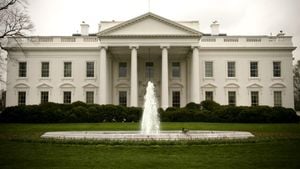On January 20, 2025, Donald J. Trump was inaugurated as the 47th President of the United States, facing extreme cold weather conditions which necessitated moving the ceremony indoors to the Capitol building. With fervent applause from supporters, Trump began his address by declaring, "The golden age for America starts right now," establishing the tone for his administration's focus on national resurgence.
Trump's speech, lasting approximately 30 minutes, served as both his inaugural address and as a roadmap for the new administration. He emphasized his commitment to putting America First, echoing sentiments he expressed during his previous administration. A significant part of his address was dedicated to immigration, where he stated, "I will declare a national emergency on our southern border." This proclamation was met with raucous applause from his audience, underscoring the importance of border security to many Americans.
Trump's approach to immigration included promises to deploy the military to the southern border, aimed at deterring illegal immigration. He exacerbated fears about crime and immigration by asserting, "We will get rid of the criminals from our land," which suggests his administration’s intent to enact even stricter immigration enforcement measures. Trump's narrative echoes previous claims made during his first term, where he often associated crime with immigration, though critics argue this perspective lacks nuance and factual support.
The newly inaugurated president did not shy away from more controversial topics. He announced, "From now on, the official position of the U.S. government will be there are only two genders: male and female," signaling significant policy shifts concerning gender identity and his administration's move to eliminate more inclusive gender options from government forms. This change aligns with his administration's broader campaign against what many perceive as "woke" culture.
Trump also discussed energy policy, advocating for traditional energy sectors, exclaiming, "Drill, baby, drill!" This reflects his intention to lift restrictions placed on fossil fuel extraction and promote U.S. energy independence. The address painted oil and gas production as pathways to economic rejuvenation, with Trump framing this commitment as part of his duty to recover America's economic standing.
Internationally, Trump reiterated his position on the Panama Canal, claiming, "We will get the Panama Canal back," asserting it was unfairly turned over to Panama. This proposition raised eyebrows, as it emphasizes Trump's aggressive stance on reasserting U.S. control over international assets—a recurring theme throughout his speeches. Trump characterized these international relationships as ones from which the U.S. has been unfairly disadvantaged, particularly emphasizing as well how the nation must secure its interests abroad.
Significantly, Trump invoked religious themes during his address, stating, "I am saved by God to bring America back to greatness," which conveys his belief in his divine mandate. This rhetorical strategy appears aimed at solidifying loyalty among his evangelical base, presenting his presidency as part of a larger, almost fated, national restoration.
The speech encapsulated Trump's vision for America: one where conservative values dominate, energy independence thrives, immigration controls are tightened, and the nation's global standing is restored. While many supporters found inspiration within his address, detractors worry about the divisive tone and many contentious policies foreseen as detrimental to social cohesion.
Analysts note this rhetoric is not entirely new; Trump has consistently drawn lines between perceived enemies and allies, leveraging conflict around identity and governmental criticism to rally his base. While the optimistic vision of national revival resonates with supporters, others fear such divisive language emboldens tensions surrounding issues of race, gender, and immigration.
Moving forward, Trump's administration faces the challenge of translating the fervor of the inaugural promises—including his pledge to enact extensive executive orders immediately—into tangible results. Critics of Trump’s previous presidency often cite the ample promises made at the outset, many of which did not come to fruition—highlighting again the difficulty of governance amid lofty rhetoric.
With President Trump's address marking the beginning of his second term, many will be watching closely as to how he balances these ambitious objectives with the political realities and potentially fierce opposition he is bound to encounter. The message from Trump is clear: his administration intends to pursue its agenda with vigor, unapologetically catering to its staunch supporters.
The inaugural address unveiled Trump's unapologetic stance on several domestic and international issues, promising actions which he insists will lift the U.S. to greatness once more. Whatever one’s stance on Trump's policies, this moment marks a significant chapter not only for his presidency but for the political climate of the nation as well.



